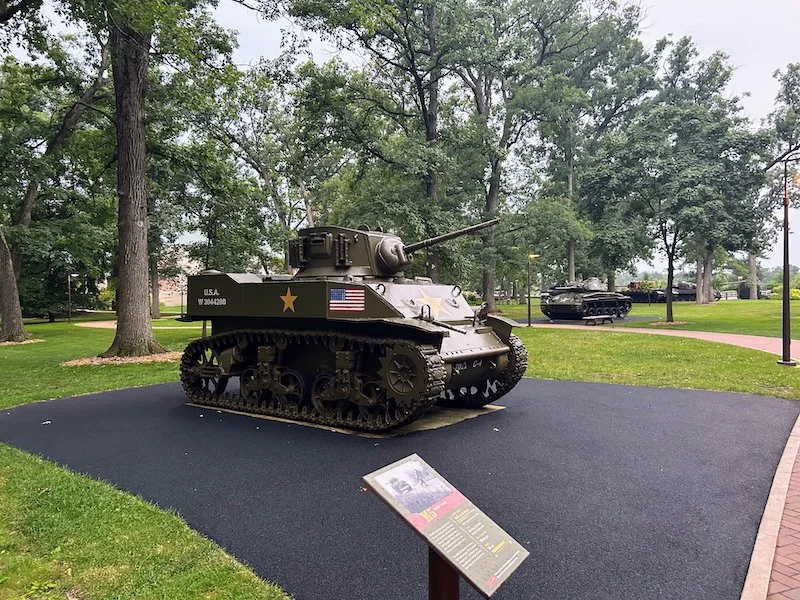First Division Museum: Archival Policy Development and Peer Support
The First Division Museum maintains a complex and active collections program that includes an archive, a research library, and a museum collection of 3D objects. Located on the grounds of Cantigny Park in Wheaton, Illinois, the museum is dedicated to preserving and interpreting the history of the U.S. Army's 1st Infantry Division. Its collections support everything from exhibitions and public programming to internal research.
M5 Stuart Tank in the Tank Park in front of the First Division Museum.
When they brought in Backlog for an archival needs assessment, they already had a team managing the collections and a clear understanding of their value to the institution. The assessment focused on clarifying workflows and identifying areas where more consistent documentation could support smoother collaboration. Like many institutions with complex collections, the museum team had developed a range of practices across departments. Our goal was to identify areas where those practices could be better aligned and where written procedures might help reduce confusion, support new staff, and streamline day-to-day work.
After completing the assessment, our work shifted into a policy development phase. This was not a top-down rewrite of their practices. Instead, we acted as an outside editor and advisor, helping the museum’s curator refine internal policies that would formalize what was already working and fill in the gaps where needed.
We helped identify which areas of the archive would benefit from clearer documentation, then shared examples and templates to support the writing process. Our conversations focused on practical questions: What needs to be written down to help future staff? Where are decisions currently being made informally? Which problems keep repeating, and how can policy help reduce that friction?
The result was a suite of internal documents that reflected the museum’s actual workflows, not a theoretical best practice pulled from another institution. These included:
An Access and Use Policy, outlining how researchers interact with the archive and what the staff needs in order to support them
A Digitization Policy, with guidance on file naming, storage, and priorities for future scanning
A Collections Management Policy, incorporating care standards for both archival and object collections, including firearms
By focusing on peer support rather than prescriptive solutions, we helped the First Division Museum create sustainable policies grounded in their existing expertise. The project gave the team a set of shared tools that will make future work easier, more consistent, and better aligned across departments.

